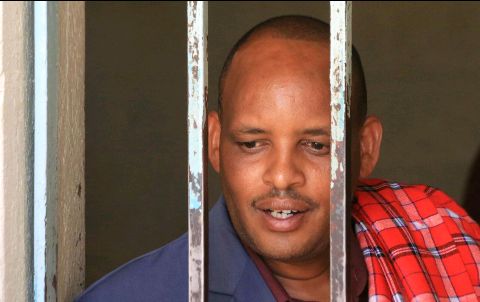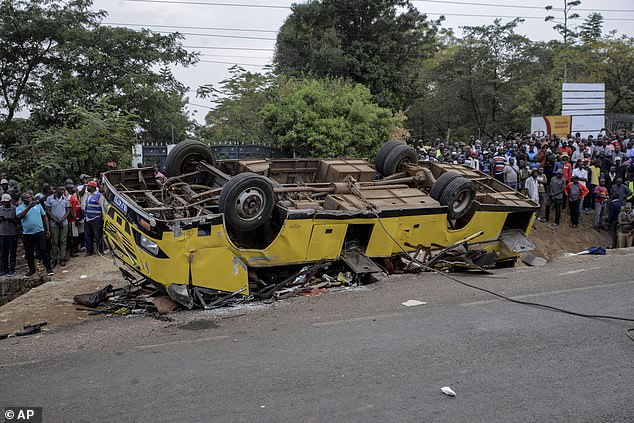UK to Pay KSh 500 Million in Compensation for Devastating 2021 Fire Caused by British Troops in Kenya
In a landmark settlement, the British government has agreed to pay £2.9 million (KSh 500 million) to 7,723 residents of Laikipia County, Kenya, affected by a massive wildfire sparked by British troops during a 2021 military training exercise in the Lolldaiga Conservancy. This payout, announced on August 22, 2025, follows a four-year legal battle led by local communities who faced health crises, property losses, and environmental devastation. This story dives into the fire’s catastrophic effects, the fight for justice, the broader context of foreign military training in Kenya, and what this means for the future, offering a deeper look than most reports to date.
The Fire That Changed Lives
In March 2021, the Lolldaiga Conservancy, a 49,000-acre haven of hilly bushland in central Kenya, became a battleground against flames. The wildfire, accidentally ignited during a British Army Training Unit Kenya (BATUK) exercise, raged for seven days, scorching over 10,000 acres and sending toxic smoke across nearby communities. Residents described the scene as “a furnace,” with more than 10,000 people choking on fumes that triggered severe health issues.
The fire, likely caused by a knocked-over camp stove, destroyed homes, livestock, and crops, while stampeding wildlife added to the chaos. A report by Howard Humphreys, commissioned by Lolldaiga Hills Limited, estimated that the land won’t fully recover until 2060. Some locals reported losing family members to ailments linked to the smoke, such as respiratory failure, while others, like Hannah Wanjiku, shared heart-wrenching stories of sick grandchildren and personal chest problems. “We live a difficult life,” Wanjiku told CNN, hoping the compensation could help her relocate.
The British Army initially claimed the blaze was contained with no harm to communities or wildlife, releasing a video of soldiers fighting the fire. However, the reality on the ground told a different story, fueling anger and a push for accountability.
A Historic Legal Victory
The road to compensation was long and arduous. Lawyer Kelvin Kubai, a 27-year-old Laikipia native, led the charge, filing a class-action lawsuit on behalf of 7,723 residents. The legal battle, supported by activists like James Mwangi, highlighted the fire’s toll: chronic breathing issues requiring inhalers, damaged farmland, and polluted water sources. A 2024 community meeting organized by Mwangi underscored the scale of suffering, with residents showing medical records and ruined property to demand justice.
The UK government opted for an “ex gratia” payment of £2.9 million (KSh 500 million), a voluntary sum without admitting liability, to avoid a lengthy trial. The settlement, finalized in August 2025, marked the first time the British Army faced such accountability in Kenya. However, the payout’s distribution has sparked controversy. Each claimant is set to receive roughly 22,000 Kenyan shillings (KSh 22,000), or about $170, a sum many feel is inadequate. Laikipia County MP Cate Waruguru called it “a success story” for winning against the British Army but lamented, “It’s so little it’s almost nothing.” Some residents plan to protest, arguing the amount fails to cover lifelong medical costs or lost livelihoods.
Kubai, while acknowledging the victory, emphasized that the payment doesn’t allow families to relocate away from BATUK’s training zones. “The only thing now is to move the training away from them,” he told Reuters, reflecting a growing call to rethink foreign military presence in Laikipia.
The Broader Context: BATUK’s Controversial Presence
The British Army Training Unit Kenya, based in Nanyuki, has operated in Laikipia and Samburu counties for decades, paying Kenya about $400,000 (KSh 52 million) annually for access. BATUK’s exercises, often held in wildlife conservancies like Lolldaiga, provide rugged terrain ideal for training. The program boosts the local economy, contributing tens of millions of pounds yearly, but its history is marred by allegations of human rights abuses, including rape, murder, and environmental damage.
The 2021 fire isn’t an isolated incident. In 2012, the death of Agnes Wanjiru, a 21-year-old found in a septic tank after partying with British soldiers, sparked outrage and an ongoing Kenyan parliamentary investigation. A 2023 probe revealed British soldiers using sex workers despite a ban, further straining relations. The Lolldaiga fire added fuel to these tensions, with a British soldier’s Snapchat post claiming responsibility and casually mentioning an elephant’s death, prompting a Royal Military Police investigation.
The British High Commission in Nairobi called the fire “extremely regrettable” and described the compensation as “generous and fair” after a rigorous claims assessment. Yet, they declined to confirm if any soldiers faced discipline, leaving questions about accountability unanswered. The UK’s decision to fund environmental restoration and establish a community fire prevention group shows some commitment to repair, but locals remain skeptical.
Voices from the Ground
The human cost of the fire is vivid in residents’ stories. One woman, holding an inhaler, told CNN that she and her neighbors now rely on medication for breathing issues. Farmers spoke of barren fields and lost livestock, unable to recover years later. Activist James Mwangi, who has rallied the community since 2021, described the smoke as “toxic,” affecting over 10,000 people. These accounts, paired with the environmental report’s grim 2060 recovery timeline, paint a picture of a community forever changed.
Social media, particularly X, reflects the public’s mixed feelings. Some posts hailed the settlement as a step toward justice, with one user writing, “Finally, the British Army pays for their mess in Laikipia.” Others expressed frustration, like a post stating, “KSh 22,000 for ruined lives? That’s an insult.” The debate echoes broader sentiments about foreign military presence, with some Kenyans, like user @lynn_ngugi1, calling claims of BATUK’s necessity “insulting to our intelligence.”
Historical Echoes and Land Disputes
The Lolldaiga fire touches on deeper wounds tied to Kenya’s colonial past. Laikipia’s vast plateaus were seized by British settlers, leading to land disputes that persist today. Pastoralist communities, like the Maasai and Samburu, often clash with conservancy owners over grazing rights. The fire, sparked on private land but affecting surrounding communities, reignited these tensions. Lempurkel himself was embroiled in such disputes, advocating for pastoralists against powerful landowners.
The UK’s military presence, rooted in colonial-era agreements, adds complexity. While BATUK’s economic contributions are significant, incidents like the fire and Wanjiru’s case fuel distrust. The compensation deal, while historic, doesn’t fully address these historical grievances or the ongoing environmental impact.
What Lies Ahead
The settlement raises big questions. Will KSh 22,000 per person truly help families rebuild? Can BATUK reform its practices to prevent future disasters? Many residents, like Wanjiku, hope to relocate, but the payout falls short of such dreams. Calls to move BATUK’s training elsewhere grow louder, with Kubai and Waruguru advocating for safer locations to protect communities.
Kenya’s parliamentary investigation into BATUK’s conduct could push for stricter oversight or even relocation. Meanwhile, the UK’s investment in Nyati Barracks, a £70 million (KSh 12 billion) facility, suggests a long-term commitment to training in Kenya. Balancing economic benefits with community safety remains a challenge.
A Step Toward Justice, But Not the End
The KSh 500 million settlement is a milestone, proving that local communities can hold powerful institutions accountable. Yet, its limitations—small individual payouts and no admission of liability—leave many unsatisfied. The fire’s legacy, from health crises to barren lands, lingers in Laikipia, a stark reminder of the costs of negligence.
This story goes beyond headlines, weaving together personal struggles, historical context, and ongoing debates. It challenges us to ask: How can foreign partnerships respect local lives? How do we heal lands and people scarred by such events? As Kenya and the UK navigate this complex relationship, the voices of Laikipia’s residents demand to be heard.
What do you think? Is the compensation enough, or should more be done?





